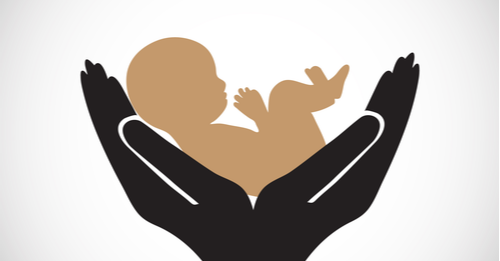'Mad Doc's' 'Save Girl Child' campaign turns eight – and going strong
IANS Jan 03, 2019
Way back on January 3, 2012, when a young Pune gynaecologist, Dr Ganesh Rakh, first announced plans for "free delivery" of all infant girls born in his hospital, he was promptly labelled 'Mad Doc' by the fraternity and the community.

However, seven years later, he has the last and loudest laugh at his hospital founded in 2007, the campaign coinciding with the birth anniversary of social reformer Savitribai Jyotirao Phule. "Not only has my campaign proved to be a super success, it has attracted voluntary participation of over 200,000 private Indian doctors in the 'Beti Bachao Jan Andolan', across the country," an elated Rakh told IANS, which first highlighted his initiative in 2014.
The campaign, unique on a global scale, entailed all deliveries of female babies at Rakh's Medicare Hospital, a celebration, free medical treatment and follow-ups. In the past seven years, the Medicare Hospital, Pune (owned by Rakh), has carried out 1,476-plus free deliveries of female child, whether normal or caesarian or even complicated cases, besides other treatment, medication and follow-ups.
"We consider the girl child a 'Goddess Laxmi' avatar… So we celebrate her arrival by playing music, distributing cakes-sweets to all in the hospital and even outside… In my early days, everybody called me a 'Mad Doctor'," chuckles Rakh.
The expenditure on these are recovered from the routine out-patient-department consultation fees or hospital bills of male child births, leaving thin profit margins but a wide smile of satisfaction on Rakh's face. It can cost around Rs 15,000 for normal deliveries or more than Rs 30,000 for complicated cases, which is waived off if a female birth is notched, irrespective of the financial status of the patient.
Over 200,000 medicos in the country have joined the cause. Thousands of small private clinics, some corporate hospitals and others have joined the BBJA, giving their own free or subsidised deliveries, discounts, propagating the cause through wedding invites, calendars, diaries, processions in different states, and other measures, he said.
"This is indeed a far cry from the situation we faced just a few years ago when the birth of a female child was abhorred and the mothers faced humiliation from the family or community… Now, more than 1.60 million volunteers are directly-indirectly involved in espousing BBJA," said Rakh.
The volunteers include para-medicos, lawyers, professors, teachers, jewelers, hair-dressers, travel-and-tour companies, wedding planners and even autorickshaw drivers, all contributing their mite and thumbing a nose at the socio-economic norms that made a female birth taboo.
This has already resulted in a sea change in attitude of many, especially the poor and middle-class sections of society who previously were not prepared to even foot the medical bills if a female child was born, he recalls. "We have witnessed instances of the woman being abused and assaulted even inside the hospital if a she delivered a baby girl, many abandoning the newborn female baby in garbage bins or gutters where they were devoured by stray dogs and pigs," Rakh revealed.
Today, the situation has changed. Many families go happily after begetting a female child, some decline the Medicare Hospital's 'free service' or instead, offer to sponsor the delivery of some male child born to poor parents.
Rakh says that once the IANS story grabbed public attention in India and abroad, thousands contacted him for advice and launched similar BBJAs in their areas in Gujarat, Karnataka, Haryana, Rajasthan, Uttar Pradesh, Chhattisgarh, Jharkhand, Uttarakhand and Punjab.
"For us the biggest compliment is international doctors are now requesting us to launch similar 'Save Girl Child' campaign in different countries. We shall go to Africa, Middle East, Nepal and other countries over the next few weeks to help them," Rakh said.
Despite all this, the spectre of female infanticide continues to haunt mothers in India. According to the Economic Survey of India (2017-18), a whopping 63 million female fetuses were killed in the past 10 years, which Rakh terms as "the biggest female genocide in the world".
According to the Lancet Medical Journal 2018, gender bias killed 2.40 million girls in the 0-5 age group in past years, or 240,000 per annum, and all these deaths were "avoidable, but parents were simply not interested to save them as they were girls".
In India, Rakh blames the prevalent, though changing - social and economic circumstances, family ethos, other factors like pliable medicos and illegal sex determination tests for the death of crores of girls, creating a grave demographic imbalance.
The son of a humble labourer Adinath and domestic help Sindu, hailing from Solapur, the intelligent young boy Ganesh Rakh managed to finance all his education winning scholarships. Now, he says is 'repaying' his debts to society through the BBJA, with rock-solid support from his wife and daughter.
-
Exclusive Write-ups & Webinars by KOLs
-
Daily Quiz by specialty
-
Paid Market Research Surveys
-
Case discussions, News & Journals' summaries